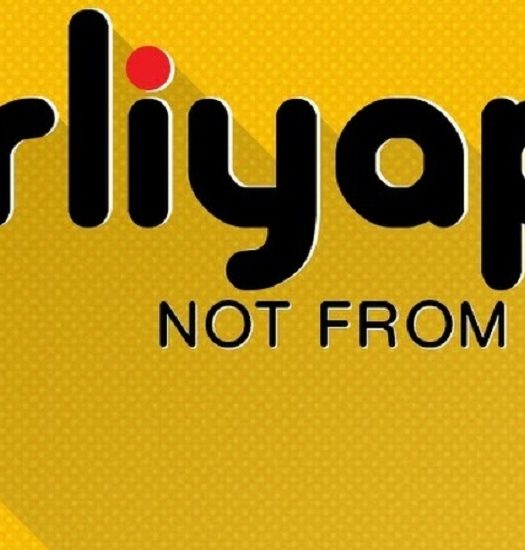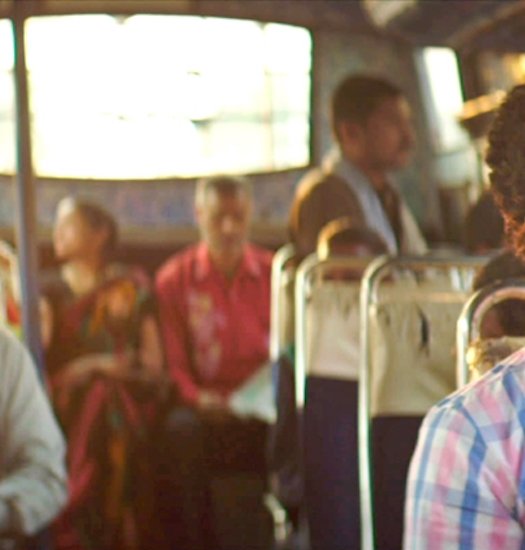Introducing swag to Bollywood music – Tanishk & Vayu
We have all danced to ‘Banno Tera Swagger’ from Tanu Weds Manu Returns at some point in our life. Did you know that this was Music Composer duo Tanishk and Vayu’s debut Bollywood song? The song that got the nation hooked to their music!
While Vayu Srivastava aces at creating catchy, in tune-with-the times lyrics, Tanishk Bagchi’s expertise lies in sound production and together, they are known to create magic. They have set the trend of infusing folk with modern music and have had two back-to-back releases with Shubh Mangal Saavdhan, where they composed music for the entire film, and Bareilly Ki Barfi’s ‘Twist Kamariya’ and ‘Sweety Tera Drama’.
Pandolin chats with the duo to know about the difference in approach to their recent films, the process behind their interesting hook lines and the decision of choosing the right singers for their songs.
You have composed varied genre of songs from ‘Twist Kamariya’ in Bareilly Ki Barfi to ‘Kanha’ in Shubh Mangal Saavdhan. How flexible is the industry when it comes to lyricists?
Vayu: Lyricists have to work on a tighter rope as they convey the message on a tune that has already been composed. However, the industry is open to new ideas, thoughts and words. You will find songs with various kinds of lyrics. Tanishk wrote ‘Baarish’, a romantic song for Half Girlfriend then he wrote ‘Sweety Tera Drama’, an upbeat dance number for Bareilly Ki Barfi and now our songs from Shubh Mangal Saavdhan are varied in genres.
Your songs don’t abide by regular Bollywood guidelines. Does it get difficult to convince filmmakers to try something experimental? Have filmmakers evolved to new kinds of music?
Tanishk: From ‘Despacito’ to a folk song from a remote village in India, filmmakers are being exposed to a lot of variation in music. As both these kinds of songs are getting equally viral, they (filmmakers) are constantly looking for musicians who can merge both the cultures by infusing new age sound with folk music.
Indian folk can be evolved into anything and most of our songs have roots in Indian folk. We started our career with ‘Banno Tera Swagger’ where we have evolved folk into a modern composition and were appreciated by the audience.
We started our learning process with A. R. Rahman sir where the focus was more on music than song writing. That place was then taken over by Amit Trivedi, where music and song writing were given equal importance. Then we came in and got another trend where we have a sound to our lyrics and are using English words in folk songs. The producers and directors are liking our compositions.
We don’t sit to make a song; we try to create a language and compose poetry in music
Do you have creative differences when working on a song? What are your individual roles?
Tanishk: I am the most egoistic person to work with (laughs). Our egos come in play only when we are fighting for our rights and we will always do that. Whatever fights and differences we have are for the betterment of the song and that has worked for us. We love to work together and that is our first priority. I don’t think we can have a healthy product without differences.
Vayu: It’s not like we don’t like each other’s work, but we want to advance our abilities, which is why we keep fighting. We are always thinking what can be done better, what can make our song last longer.
We compose together but Tanishk has a better hand at production. He is good with sounds, beats and compositions. I take care of lyrics. Primarily we do this, but we also interchange where Tanishk writes and I give production inputs.
Also Read: 5 essentials for budding music composers by Tanishk Bagchi
How different was the brief for Shubh Mangal Saavdhan from Bareilly Ki Barfi?
Vayu: The only common factors between Shubh Mangal Saavdhan and Bareilly Ki Barfi were Ayushmann Khurrana and Seema Pahwa; the stories were different, the director’s approach was different. Ashwini Iyer Tiwari (Bareilly Ki Barfi), R.S.Prasanna and especially Anand Rai sir (Shubh Mangal Saavdhan) have a very different approach to music.
Tanishk: We could have done similar music for both the films but we made it a point to differentiate the colour, tone and feel of each. In Shubh Mangal Saavdhan, we wanted the songs to have a desi, classical flavour while in Bareilly Ki Barfi, we wanted our songs to be more western.
Vayu: Also, we created music for the entire film in Shubh Mangal Saavdhan, so we knew exactly what the requirement was. Every time we presented something it was approved in the first go. But with Ashwini Ma’am it was different, she is from an advertising background and was more concerned about the music and the theme. That was challenging.
Tanishk: Even with the production, she was very specific, she knew what she wanted so Bareilly Ki Barfi was more difficult for us to crack. When you have too many people taking calls on the music, it gets tougher for us to satisfy everybody; the label, the director, the choreographer. But it’s a good team effort.
Anand Sir gave us our first break with ‘Banno Tera Swagger’ so it was our responsibility to deliver the best whenever he would call us next. We wanted to work on an entire film with him and fortunately we got that with Shubh Mangal Saavdhan. Also, once you are successful, the producers and directors know your style of music and sound so they expect that from you, and we deliver it.
As an actor, you shouldn’t sing a song expecting to gain fame out of it. That ruins the song
How do you come up with the hook of a song like ‘Twist Kamariya’ or ‘Rocket Saiyyan’?
Tanishk: Vayu is social, he keeps traveling to places and gets different pairs of words that work together. I keep on collecting sound samples and when we start collaborating, we don’t sit to make a song; we try to create a language and compose poetry in music. Western songs have more emphasis on song writing whether it is Bruno Mars or The Weeknd. They have meaning and feeling to their songs and Vayu brings in that factor in every song, which then pulls the crowds. All these combinations and permutations of ‘Twist Kamariya’ or ‘Banno Tera Swagger’ are created by Vayu.
Also Read: Young Bollywood Musicians to look out for in 2017
On what basis do you find singers for your songs? How do you feel about actors doing their own playback in films?
Tanishk: We use singers as an instrument in our song. We never think that we have to bring in a star to get views or be famous. What we intend is an honest voice. We have collaborated with a new singer in every song of ours. We keep listening to new singers, randomly meet people, record their voices and make songs thinking about their voice.
We are always open to actors singing. Recently we dubbed Ayushmann for ‘Kanha’, a Thumri, classical song. It was very interesting to watch him sing it as he has picked up the classical notes very well. Some actors are really good at it. However, we don’t believe in actors wanting to sing despite not have the talent and then auto-tuning their voice.
Hardworking singers from different states come here to get just one song, and it is unfair to them if an actor who can’t sing snatches their opportunity. When a song releases, it’s the face on the video that becomes more famous and gets more appreciation than the singers. Music directors and lyricists are the last one to get any acknowledgement here, which is very different from the West.
Vayu: As an actor, you shouldn’t sing a song expecting to gain fame out of it. That ruins the song and becomes only a gimmick. It should not be about the fame, the energy should go in making the song better.
Tanishk: Unless you sing it very well. Parineeti sang our song, which I really liked, it sounded like someone who is trained has sung it. The song did well too.
Lyricists have to work on a tighter rope as they convey the message on a tune that has already been composed
How do you work when asked for a song in a language you aren’t that familiar with?
Vayu: You can’t write the lyrics of a song if you don’t know the language. If a song requires a Bhojpuri or Rajasthani touch, you can bring in that by researching and asking around. At the end of the day, you are making songs for a Hindi film so the audience also needs to understand, it can’t be a different language altogether.
Tanishk: Actually, you should either make a song that nobody understands or one that everybody does; both will work! I don’t understand what ‘Despacito’ means but it is a super hit song. On the other hand, ‘Bolna’ is the simplest song I have ever written and composed but people liked it. India accepts all kind of music, which is the great thing about our country.
You write jingles as well, how different is the process from composing film songs?
Vayu: In jingles and other corporate work, there is too much hierarchy and you have to deal with almost ten different people. When we are making film songs, we are only dealing with the director and sometimes with the label and the producer, which is two to three people. It gets tough to create jingles as you are trying to please the client, the agency, the production house and everyone working there and not necessarily everyone is musically literate. It’s like a video game where you have to cross multiple levels. It’s interesting but tough.
Tanishk: Making one jingle is like making ten film songs!
In Shubh Mangal Saavdhan, we wanted the songs to have a desi, classical flavour while in Bareilly Ki Barfi, we wanted our songs to be more western
Are you planning to foray into dialogue or script writing for films?
Vayu: I am not writing dialogues or scripts currently. I have written for films in the past but I didn’t enjoy it. I was doing it for the money but thankfully those films never released. We will be writing for films later but that’s on a back burner right now.
Tanishk: Right now our first priority is to compose good music and we are focusing on it. If we have too many things going on in our heads, we won’t be able to concentrate on our music. We hardly get any time these days, we barely sleep for two hours. If we are composing music for a complete film, it means we have to create five songs and we have to deliver it in a month so we hardly get time to do anything else.
Vayu: To make one song from the conceptualization stage to the end takes around ten to fifteen days. So in a film, we are simultaneously working on two songs. We don’t have the time right now to do a script but if we are doing lesser films or songs at some point, maybe we will venture into it.





